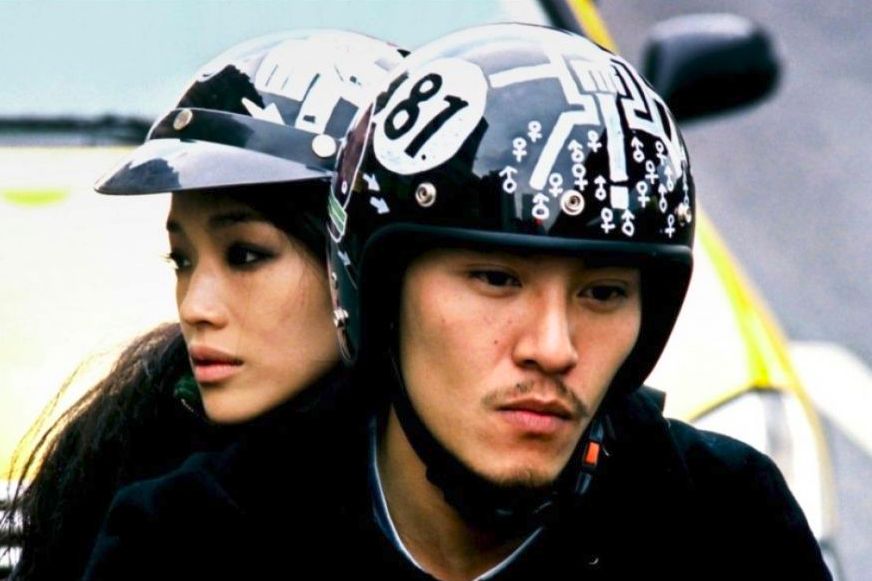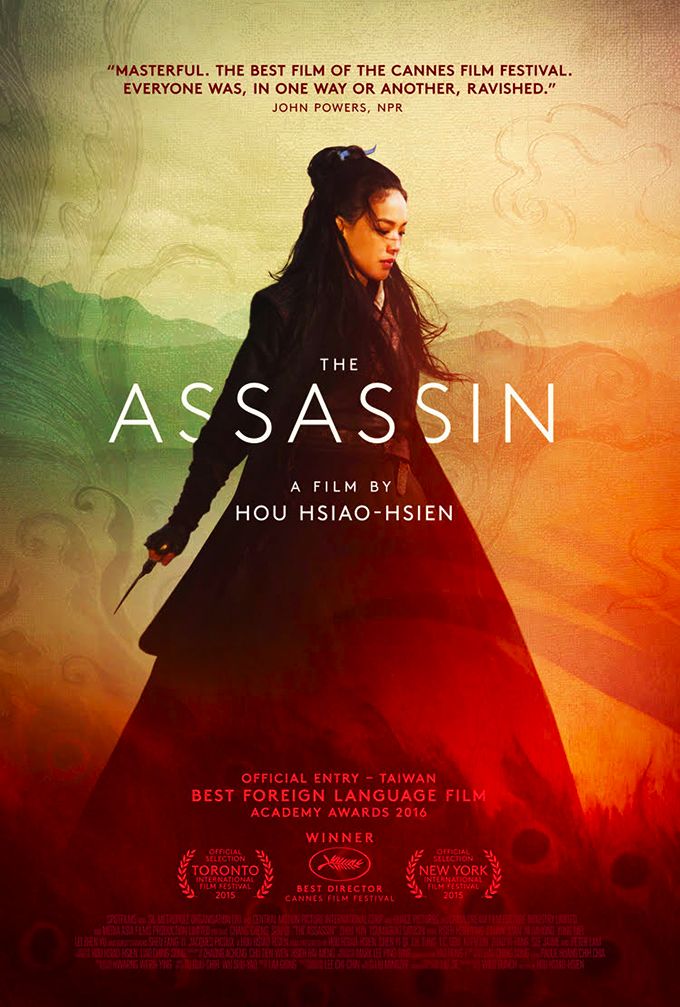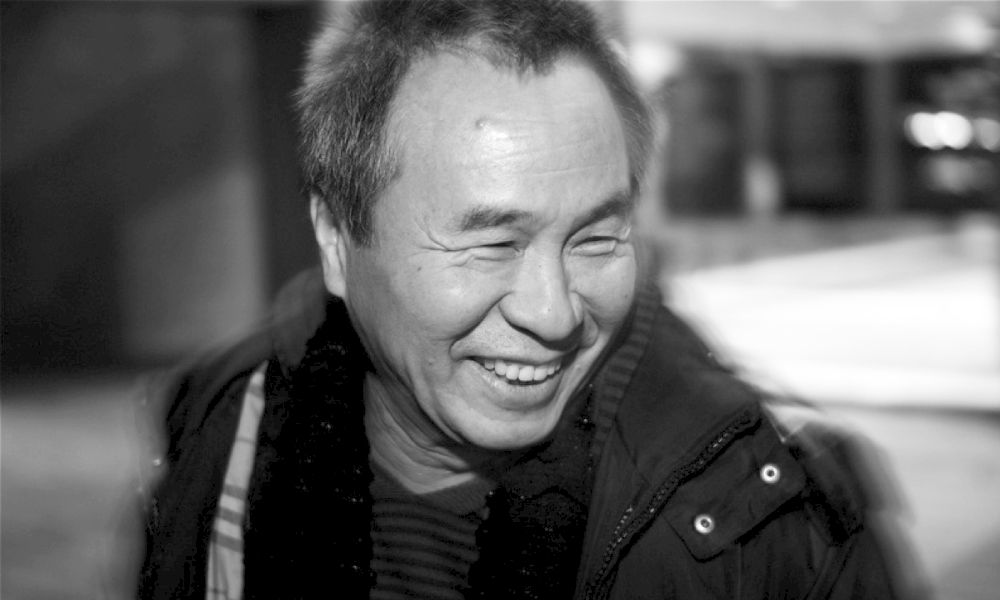"Hou is an extraordinary director - gentle, reflective, beautifully composed, inclined to hold his shots in space and duration. He exemplifies that natural, fluent style that unites so many of the most thoughtful directors. I urge any reader to seek out his work, in whatever form it can be found." - David Thomson (The New Biographical Dictionary of Film, 2002)
Hou Hsiao-hsien
Director / Screenwriter
(1947- ) Born April 8, Meixian, Guangdong, China
Top 250 Directors / 21st Century's Top 100 Directors
(1947- ) Born April 8, Meixian, Guangdong, China
Top 250 Directors / 21st Century's Top 100 Directors
Key Production Countries: Taiwan, France
Key Genres: Drama, Family Drama, Period Film, Romantic Drama, Urban Drama, Coming-of-Age, Psychological Drama, Rural Drama
Key Collaborators: Chu T'ien-wen (Screenwriter), Liao Ching-Song (Editor), Lee Ping Bin (Cinematographer), Jack Kao (Leading Actor), Huang Wen-Ying (Production Designer), Li Tian-Lu (Leading Actor), Chen Huai-en (Cinematographer), Lim Giong (Composer), Yang Li-Yin (Character Actress), Shu Qi (Leading Actress), Annie Shizuka Inoh (Leading Actress), Wu Nien-Jen (Screenwriter)
Key Genres: Drama, Family Drama, Period Film, Romantic Drama, Urban Drama, Coming-of-Age, Psychological Drama, Rural Drama
Key Collaborators: Chu T'ien-wen (Screenwriter), Liao Ching-Song (Editor), Lee Ping Bin (Cinematographer), Jack Kao (Leading Actor), Huang Wen-Ying (Production Designer), Li Tian-Lu (Leading Actor), Chen Huai-en (Cinematographer), Lim Giong (Composer), Yang Li-Yin (Character Actress), Shu Qi (Leading Actress), Annie Shizuka Inoh (Leading Actress), Wu Nien-Jen (Screenwriter)
"Hou Hsiao-hsien is frequently heralded as one of the premier auteurs of the Taiwanese New Wave. His work engages themes of political, cultural, and personal transition , frequently through oblique narratives grounded upon generational conflicts. Like the films of Yasujiro Ozu, Hou's minimalist yet meticulous mise-en-scène depicts not only life's seemingly insignificant details, but the impact of time and light upon the understanding of character and history... A hugely talented visionary, Hou is one of the greatest storytellers of this, or any, age." - Jay McRoy (501 Movie Directors, 2007)
"His contemplative style is at times reminiscent of Ozu, with its generally static camera and simple compositions (though he usually favours far longer takes), and his early films likewise portray tensions in the family... Hou's quiet, impressionistic narratives build steadily to an emotional pay-off that is often devastating when it finally comes." - Geoff Andrew (The Director's Vision, 1999)

Three Times (2005)
"Hou Hsiao-hsien is the most internationally renowned of the filmmakers associated with Taiwan's "New Cinema" movement. The "New Cinema" was forged out of the country's aging industry in the early 1980s by a group of emerging filmmakers, most of whom were in their early thirties at the time... Hou's achievement is not only in his cinematic sensitivities but also in his social consciousness. As much as he is a filmmaker, Hou is a historical and social commentator of the first order.." - Vivian Huang (International Dictionary of Films and Filmmakers, 1991)
"In collaboration with his long-time cinematographer Lee Pin-bing, Hou creates languid, rigorous dramas emphasizing long shots and extended takes awash in feverish colors or exquisite lighting displays, as in the 1998 period drama Flowers of Shanghai." - Andrew Bailey (Cinema Now, 2007)
"For all his essentially modern formalist rigour, Hou is a humanist dedicated to character observation in a naturalistic setting, even sentimentally so. He is repeatedly drawn to autobiography and nostalgia in his numerous period films, although these also reflect still-pressing questions about Taiwanese identity." - Tom Charity (The Rough Guide to Film, 2007)
"The films of Hou Hsiao-hsien , the most internationally renowned director associated with Taiwan's 1980s New Cinema movement, are subtle and beautifully composed." - Ronald Bergan (Film - Eyewitness Companions, 2006)
"His gentle, meticulously composed, static films are marked by a nostalgia for the Taiwan of his youth and a desire to confront how the country has been marked by economic and social changes." - Chambers Film Factfinder, 2006
"Hou Hsiao-hsien might best be described as "a film-maker's film-maker". Other directors revere the Taiwanese auteur, even if his films rarely reach wide audiences. When Jim Jarmusch won the Cannes Grand Prix for Broken Flowers, he seemed almost embarrassed at landing such an award ahead of Hou, whom he called his "teacher." - Geoffrey Macnab (The Guardian, 2005)
"You have to find the right way to approach the right subject for yourself. No one can do that for you. You may not be aware of your great potentiality. You do not need to make films that we think are proper, or feel compelled to make certain kinds of films because they have been praised or recognised. Never let yourself be tied up by these thoughts. Be creative and unpredictable for every film you make. That’s best. This is all I want to say." - Hou Hsiao-hsien (Rouge, 2003)
Selected Filmography
{{row.titlelong}}
GF Greatest Films ranking (★ Top 1000 ● Top 2500)
21C 21st Century ranking (☆ Top 1000)
T TSPDT R Jonathan Rosenbaum S Martin Scorsese
21C 21st Century ranking (☆ Top 1000)
T TSPDT R Jonathan Rosenbaum S Martin Scorsese
Hou Hsiao-hsien / Favourite Films
Aguirre: The Wrath of God (1972) Werner Herzog, Amarcord (1973) Federico Fellini, Breathless (1960) Jean-Luc Godard, Distant Thunder (1973) Satyajit Ray, Fear Eats the Soul (1974) Rainer Werner Fassbinder, Floating Clouds (1955) Mikio Naruse, The Godfather (1972) Francis Ford Coppola, Kings of the Road (1976) Wim Wenders, A Short Film About Love (1988) Krzysztof Kieslowski, Tokyo Story (1953) Yasujiro Ozu.
Source: Sight & Sound (1992)
Aguirre: The Wrath of God (1972) Werner Herzog, Amarcord (1973) Federico Fellini, Breathless (1960) Jean-Luc Godard, Distant Thunder (1973) Satyajit Ray, Fear Eats the Soul (1974) Rainer Werner Fassbinder, Floating Clouds (1955) Mikio Naruse, The Godfather (1972) Francis Ford Coppola, Kings of the Road (1976) Wim Wenders, A Short Film About Love (1988) Krzysztof Kieslowski, Tokyo Story (1953) Yasujiro Ozu.
Source: Sight & Sound (1992)
Hou Hsiao-hsien / Fan Club
Manohla Dargis, John Powers, Li Cheuk-to, Kevin B. Lee, J. Hoberman, Michel Ciment, Jia Zhangke, Ain-Ling Wong, Ann Hui, Jonathan Rosenbaum, Shelly Kraicer, Tien-Hsiang Wen.
Manohla Dargis, John Powers, Li Cheuk-to, Kevin B. Lee, J. Hoberman, Michel Ciment, Jia Zhangke, Ain-Ling Wong, Ann Hui, Jonathan Rosenbaum, Shelly Kraicer, Tien-Hsiang Wen.
"Fan Club"
These film critics/filmmakers have, on multiple occasions, selected this director’s work within film ballots/lists that they have submitted.
These film critics/filmmakers have, on multiple occasions, selected this director’s work within film ballots/lists that they have submitted.


